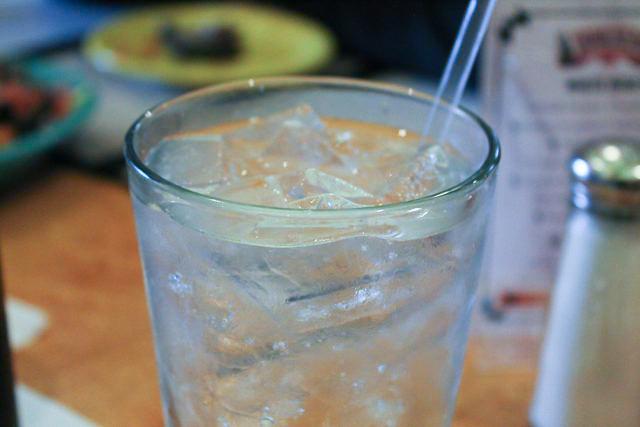Since the introduction of artificially engineered sweeteners in 1901, the first being saccharin, the molecule in Sweet n’ Low, the world of science has been debating whether or not these sweeteners are healthy.
“The concern is that Americans are eating more sugar than they used to. They are eating more of everything than they used to,” Dr. Dale E. Brigham, University of Missouri associate teaching professor of nutrition and exercise physiology, said. “Instead of eating raw food, we now process it, and we add two things. We add salt and we add sugar or other sweeteners. Sweeteners have really gone over.”
The difference in sugar, a naturally sweet molecule that flatters most palettes, and sweeteners such as high fructose corn syrup, is found in their molecular composition.
“Sucrose has been around for a while, but it was very rare in our ancestors diet, so they valued things like honey bees and anything that was sweet. But with the rise of industrial sugar production, high fructose corn syrup is a bit cheaper because you can make it from corn,” Dr. Brigham said. “Structurally, it is different, [too.] When you split sucrose, a table sugar molecule, you have glucose and fructose. High fructose corn syrup is also a combination of glucose and fructose, but it may not be a fifty fifty split.”
This difference in composition raises many health conundrums. Does the different composition affect the body’s process of breaking down sugar? Can it have negative side effects? Many scientists say yes.
“So the big question is, is this fructose, which is kind of a different sugar structurally than glucose, having a different effects in people’s bodies? What some studies are pointing to, is the more fructose in there, the more bad things are happening,” Dr. Brigham said. “The bad things may have to do with the liver making more fat, which is what it does with an abundance of fructose among other things. Also, some changes occur in the way we deal with blood sugar and having to do with insulin.”
After taking Honors Biology class her sophomore year, senior Anmol Sethi realized she has a recessive trait for diabetes, which has caused her to be “pretty conscious” of how much sugar she intakes to avoid getting diabetes or passing it on to her children.
“It’s crazy how much sugar our generation eats without even thinking about it. We eat whatever we want without thinking of the implications for [getting] future diabetes,” Sethi said. “There’s a lot of things I stay away from now — such as drinks from Starbucks and Panera. I always joke and say it’s liquid diabetes.”
According to cncahealth.org American teenagers eat up to 34 teaspoons of added sugars each day, which is massively more than what is suggested. The American Heart Association recommends that men consume no more than nine teaspoons of added sugar, for women only six teaspoons.
The appeal for these sweeteners, that otherwise carry a bad reputation, is their low caloric content. The weight-loss industry basks in the creation of these modified sweeteners and brag about the almost non-existent calorie count these sweeteners bear. Dr. Brigham warns that these advertisements are largely misleading, though.
“Coca-Cola has started marketing this premium milk and one of the things that they are touting is that it is lower in sugar,” Dr. Brigham said. “Milk has sugar. It is called lactose. I’m kind of miffed that for a company that made its millions off of sugar water, all the sudden decided that milk has sugar too, but it is not quite the same. The nutritional factors behind calories and sugar content are so different, it’s a little ridiculous.”
While many vehemently refute the use of these sweeteners in the food industry, there are still others who don’t believe they are harmful to the body. Dr. Brigham is on the fence. He sees the negatives, but can’t frame sweeteners as criminals.
“Right now, nobody can conclusively say, at least to my satisfaction, that there is anything horribly worse with high fructose corn syrup,” Dr. Brigham said. “For most of us, we can do with less [of either sugars.] It’s things like sugary soft drinks that sometimes have high fructose corn syrup in them, or foods that are high in additive sugars such as ketchup. I bought some salsa and I read the label closely when I got home and it had high fructose corn syrup that I didn’t really want.”
Despite their inability to claim that these sweeteners are bad, scientists largely agree that they are not beneficial to health. Many advise those looking to make healthy choices to avoid the intake of these sweeteners. Sethi personally fights to eat foods that nurture her body, instead of chowing down on sugary doughnuts or other junk foods that are not nourishing.
“Things that you can easily tell have a ton of sugar in them, [like] drinks, candy [and] ice cream, we don’t need them in our body. It’s so much better to eat fruit or things that have natural sugar in them,” Sethi said. “If we eat healthy and make smart choices while working out, our generation will be fine.”
Dr. Brigham agrees, as tempting as sugar-filled snacks can be, the healthy option is to abstain from engineered sugars and stop focusing on zero calorie foods that do not contribute to our health.
“I think most people are better off having something that doesn’t have a chemical concoction in it. Some people are sensitive to them and some people are not,” Dr. Brigham said. “I just think they are kind of dumb. In a world with hunger, what are we doing? Really, philosophically, we are spending all this money transporting foods across the country that have no nutrient value.”
By Abby Kempf
LATEST NEWS
- Stress, anxiety skyrocket as students prepare for upcoming AP tests
- RBHS holds successful night of percussion
- Not even water?
- Solar eclipse to pass through Missouri, April 8
- How CPS is organized: a guide
- City of Columbia to hold school board election April 2
- Youth Election Participants to assist in upcoming municipal election
- City of Columbia hosts first Community Engagement Session for McKinney Building, hopes to gain public insight on the structure’s future
- RBHS Track Team Opener at Battle Gallery
- March Mathness Photo Gallery



























































































Nikol Slatinska • Apr 16, 2015 at 11:10 am
This story was interesting, but I wish it went a little more in-depth about the harmful effects of sweeteners, like if they are cancerous, because everyone knows you can get diabetes from too much sugar.